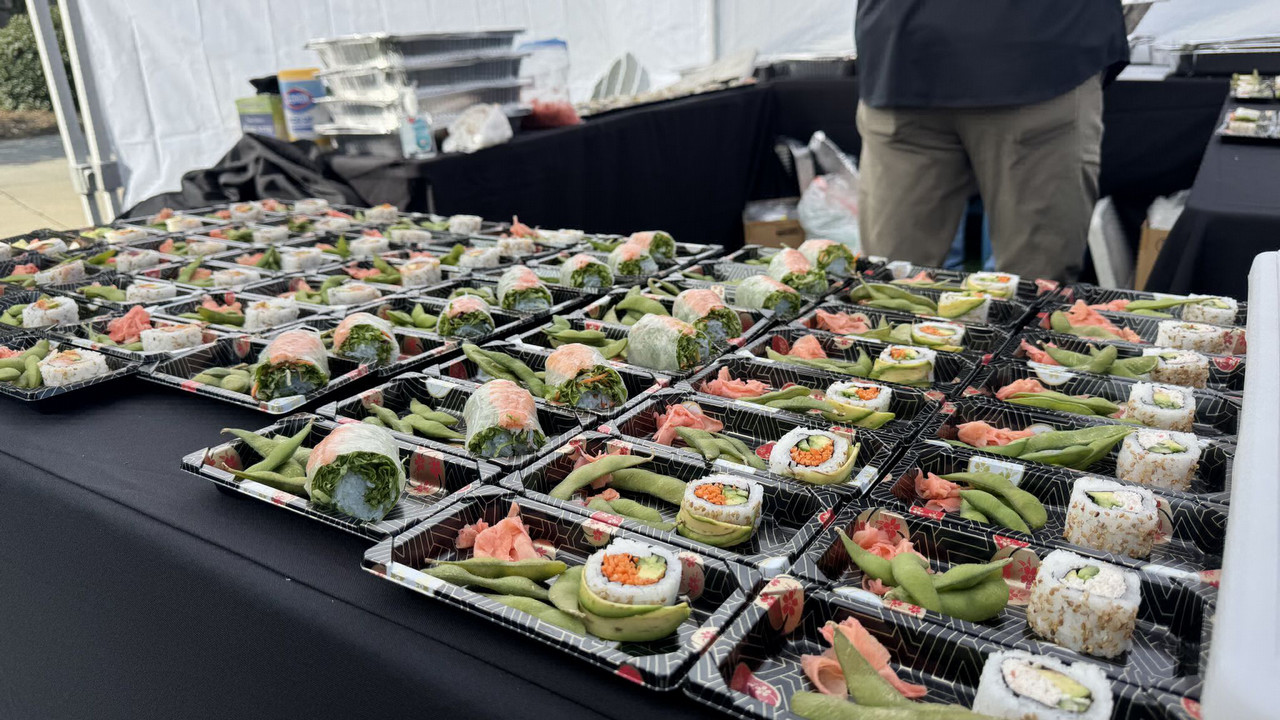Who knew perfectly rolled sushi could help pay for college? It might seem strange, but the worlds of culinary skill and academic funding often meet. Your drive to create something, whether it's a tasty meal or a smart business, can open many doors. This is true for cooking, just like any other art. College is expensive, and lots of students need help paying for it. That's where a knack for business, even with food, can really make a difference.
An entrepreneurial chef isn't just someone who cooks well. They see the big picture. They are creative, dedicated, and understand how to run a good business. Becoming a top sushi chef needs years of practice and a sharp mind. It takes vision to turn that skill into a money-making venture. Imagine turning your passion for fresh fish and expertly made rice into funds for your own education. We'll show you how this journey from kitchen to classroom is possible.
The Art and Business of Sushi
Mastering the Craft: Beyond the Cutting Board
The Precision of Preparation
Knife skills are super important for a sushi chef. You need to slice fish just right, every time. Getting the rice perfect is also a big deal; it needs the right stickiness and flavor. Choosing only the freshest stuff makes all the difference. Plus, how you put it on the plate matters a lot. It's not a quick skill to learn. Many chefs spend years learning from others, working their way up. This long training helps them master every tiny detail.
Understanding Flavors and Pairings
Sushi is a dance of tastes. Think about umami, that savory depth, found in fresh tuna. Different fish, like fatty salmon or light snapper, bring unique flavors. Then there are the extras: a dab of spicy wasabi, a slice of sweet ginger, or a splash of salty soy sauce. Ever had a California roll or a spicy tuna roll? Each one has its own special mix of flavors and textures. Knowing how they all go together is key to making great sushi.
Building a Sushi Business: From Stall to Success
Concept Development and Market Research
First, figure out your sushi style. Will it be classic Japanese, something new like fusion, or even all plant-based? Next, think about who you want to sell to. Are they students, families, or office workers? Also, check out other sushi spots nearby. What are they doing well? What could you do better? A good idea is to visit a few sushi restaurants. Watch how they operate. See what people like and what they don't. This helps you plan your own place.
Financial Planning and Funding
Starting any food business costs money. You'll need to think about how much it will take to open your doors. How much will you charge for a roll? How will you keep track of your ingredients? Getting money can mean a small loan, finding an investor, or using your own savings. Did you know that many small food businesses start with a few thousand dollars? Smart planning here can help your business last and grow.
Marketing and Customer Engagement
To get people to know your sushi, you need good marketing. Share cool photos of your food on Instagram. Start a loyalty program where regulars get freebies. Always ask for feedback and reply to reviews online. Think of how popular food trucks get people excited with their bright signs and unique menus. Making your sushi stand out is just as important.
The Path to Education: Funding Dreams
The Rising Cost of Higher Education
Statistics on Student Debt
Going to college can be super expensive. Many students finish school owing a lot of money. The average student loan debt in America is often tens of thousands of dollars. It's a real burden for young adults. Reports from places like the Federal Reserve or education groups show how big this problem is. These numbers remind us why finding other ways to pay for school is so important.
The Value of Education in Career Growth
Even with the high cost, a good education is still a smart move. A college degree or special training can open up better job chances. It often leads to earning more money over your lifetime. Studies often point out that people with higher education usually have more stable jobs. They also tend to see their paychecks grow bigger over the years.
Scholarships as a Catalyst
Types of Scholarships Available
Scholarships come in many forms. Some are for great grades (merit-based). Others help students who really need money (need-based). You can also find scholarships for specific fields, like cooking or science. Lots of groups, like big companies or small foundations, give them out too. Want to find scholarships? Look online at big databases. Check your school's financial aid office. They often have lists of local and national awards you can apply for.
Applying for Scholarships: Crafting a Winning Application
To win a scholarship, your application needs to shine. Write an essay that tells your unique story and why you deserve the help. Get letters from teachers or mentors who know you well and can speak to your strengths. Show off your achievements, both in school and outside of it. Don't be shy about asking for help. Your school counselor or a college advisor can give great tips. They know what scholarship groups look for.
Entrepreneurship as a Scholarship Engine
Direct Funding: Business Ventures Supporting Education
Establishing a Business Scholarship Fund
Imagine using money from your sushi business to help someone go to school. You can set up your own scholarship fund. You'd decide who gets the money and what rules they need to follow. Maybe it's for students studying cooking, or just local kids. Some businesses, like the "XYZ Bakery," give a scholarship each year to a deserving student in their town. It's a powerful way to give back and help others.
Partnering with Educational Institutions
You could also team up with a local college or culinary school. Offer a scholarship with your business name on it. This helps students and also makes your brand known. It's a win-win situation for everyone involved. Reach out to the development office at a school. They can guide you on how to start a partnership. They know how to make these kinds of programs work smoothly.
Indirect Support: Building Skills and Networks
Demonstrating Leadership and Initiative
Running your own sushi business shows you're a leader. You solve problems every day and take charge. These are super valuable skills that scholarship committees love to see. It tells them you're serious and capable. "We always look for students who've shown they can start something and stick with it," says a scholarship advisor from a big foundation. Your business shows you've got that drive.
Financial Literacy and Management
When you handle the money for your business, you learn a lot about finances. You track sales, pay bills, and manage your budget. This skill helps you in school and in life. You'll know how to manage your own money, too. Keep good records of your business money. This proves you know how to be responsible. It's a practical skill that impresses scholarship boards.
Inspiring Journeys: Real-World Connections
Culinary Entrepreneurs Achieving Academic Goals
Case Study 1: The Sushi Stand Scholar
Meet Maria, who dreamed of becoming a marine biologist. To pay for her tuition, she started a small sushi stand at weekend markets. She made fresh rolls and bento boxes. The profit from her business covered her books and some tuition fees. She managed her studies during the week and her business on weekends, proving passion pays off. Maria learned how to buy fish wisely and how to market her stand. Her hard work paid off when she got into her dream university. She even won a local scholarship, partly because of her entrepreneurial spirit.
Case Study 2: The Fusion Chef's Foundation
Chef Kenji, who owns a popular fusion sushi restaurant, never forgot how hard it was to get started. His restaurant does very well, so he created the "Kenji's Kitchen Scholarship." This program helps young chefs go to culinary school. They get money for tuition and a chance to intern in his kitchen. The scholarship looks for creative culinary students who also show community spirit. Kenji's initiative has helped several young people chase their cooking dreams, just like he did.
Conclusion
The story of sushi, scholarships, and entrepreneurship shows a powerful link. It's clear that passion, hard work, and smart business choices can create amazing paths. These paths lead right to higher education. Remember, your small business isn't just a way to make money. It can be your ticket to learning more and growing as a person. The smell of fresh sushi isn't just about dinner. It can be the scent of new chances, helping you reach your school goals through a strong spirit of business.

